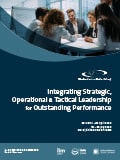An intensive professional development training course on
Essential Skills for the
Process Industry Professionals
Why Choose this Training Course?
The course will discuss the performance of pressure vessels, storage tanks, thermal equipment, piping systems and fluid transport machinery components under various operating conditions including in-depth explanation on the process of material degradation such as corrosion, erosion, fatigue and others that may lead to component failure.
It will present the best practices from High Reliability Organizations (HROs) with respect to both excellence and safety. HRO is a term that refers to industries such as oil and gas, process, nuclear and aviation, where they possess a high degree of reliability despite their hazardous environment. It shows how organizations can learn from failures and near misses, as well as from other industries. Operational excellence will cover aspects of safety, risk, reliability, and quality management. This will include best practice at both strategic and operational levels, as well as in specific areas that relate to management skills, reliability and decision analysis, benchmarking, and information systems.
Several examples and case studies included in the workshops and will demonstrate the application of Fitness for Service (FFS) assessment method that enables quantitative evaluation of the remaining life in service of any component of equipment. Failure prevention methods will also be discussed and explained.
The course will feature:
- Explanation of mechanical design of pressurized equipment according to ASME Code
- Consideration of best operating conditions: Integrity Operating Window and MOC
- Analysis of damage and degradation mechanisms that affect process equipment and piping
- Guidance for selecting the most appropriate inspection method based on API code guidelines
- Procedure for assessing the existing flaws and defects in the given component
- Understanding of safety, risk and continuity of operations
- Development of people management skills
- Mastering techniques that can enhance plant reliability
- How to conduct benchmarking and quality systems auditing
- Applying decision analysis approaches
The Structure
This comprehensive programme consists of two modules which can be booked as a 10 Day Training event, or as individual, 5 Day courses.
Module 1 – Process Equipment & Piping Systems: Design, Operation, Failure Evaluation & Repairs
Module 2 - Operational Excellence in the Process Industry: The Key to a Lean and Low-Risk Failure
What are the Goals?
By the end of this course, participants will be able to:
- Understand the safe design and operation of pressurized process equipment
- Follow the procedure for inspection and testing of process equipment
- Apply the fundamental concepts and strategies to prevent failures
- Use the best practices of FFS to estimate the remaining life of operating equipment
- Select the methods of repair and alteration of pressurized process equipment
- Explain the benefits of acquiring best practices from HROs
- Show how activities play a part in helping their organization perform at a higher level
- Determine methods for generating and implementing effective performance metrics
- Use a process improvement methodology back at work
- Analyze critically the methodologies employed in the organization & implement improvements
Who is this Course for?
This course is highly recommended for Operations, Maintenance, Reliability, Engineering and Technical Support staff. Also, this course is applicable to any person actively involved or contemplating safety, performance measurement, improvement and/or quality and reliability related activities in the chemical and process industries as well as the oil and gas industry.
This course is suitable to a wide range of professionals but will greatly benefit:
- Operations & Process Professionals
- Process, Mechanical and Chemical Engineers
- Operation and Maintenance Engineers
- Project Engineers
- Supervisors and Managers
- Technical Personnel involved in inspection
- Reliability & Safety Professionals
- Other professionals involved in process improvement
How will this be Presented?
This course will utilise a variety of proven adult learning techniques to ensure maximum understanding, comprehension and retention of the information presented. This includes formal lectures and interactive worked examples with active contribution of all delegates during discussions and team work. Real life examples (i.e. case studies) will be selected to illustrate the procedure for carrying out typical equipment failure analysis.
The emphasis in the entire course will be on the explanation of equipment failure causes and safety operation system as well as providing answers to problems that is encountered in everyday practice. There will be ample opportunities for open discussion and sharing professional experiences on existing and new technologies.
The Course Content
Module One: Process Equipment & Piping Systems: Design, Operation, Failure Evaluation & Repairs
Day One
Repairs, Alterations and Rerating of Process Equipment
- Classification of Repairs
- Repair Best Practices for Pressure Vessels and Other Equipment
- Rerating of Pressure Vessels
- Hot Taping and Line Stopping
- Positive Material Identification (PMI)
Module Two: Operational Excellence in the Process Industry: The Key to a Lean and Low-Risk Failure
Day Six
Continuity of Operations – Plant Systems Reliability
- Coping with risks
- Defining reliability and resilience
- Reliability Centered Maintenance (RCM) techniques
- Fault Tree Analysis (FTA)
- Reliability Blok Diagram (RBD)
- Practical examples and case studies
Day Eight
The Concept of Generic Lessons & Benchmarking
- Attributes of the generic lessons
- Best practice of learning from failures from different industries
- Best practice can be learned from worst practice
- The ten generic lessons and the three underpinning factors
- What is benchmarking? History of benchmarking
- Different methods of benchmarking and how they relate to each other
Day Ten
A Model of Learning and Unlearning Excellence
- Adaptive organizational learning
- Routine dynamics
- The Decision-Making Grid (DMG) model
- A framework for analyzing near-misses and failures
- High severity with low frequency versus high severity with high frequency
The Certificate
- AZTech Certificate of Completion for delegates who attend and complete the course.
DO YOU WANT TOLEARN MORE ABOUT THIS COURSE?
© 2024. Material published by AZTech shown here is copyrighted. All rights reserved. Any unauthorized copying, distribution, use, dissemination, downloading, storing (in any medium), transmission, reproduction or reliance in whole or any part of this course outline is prohibited and will constitute an infringement of copyright.







